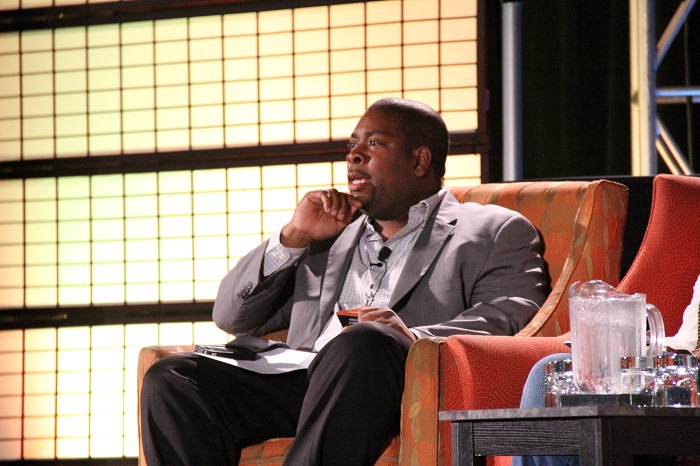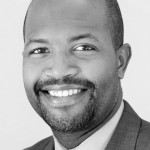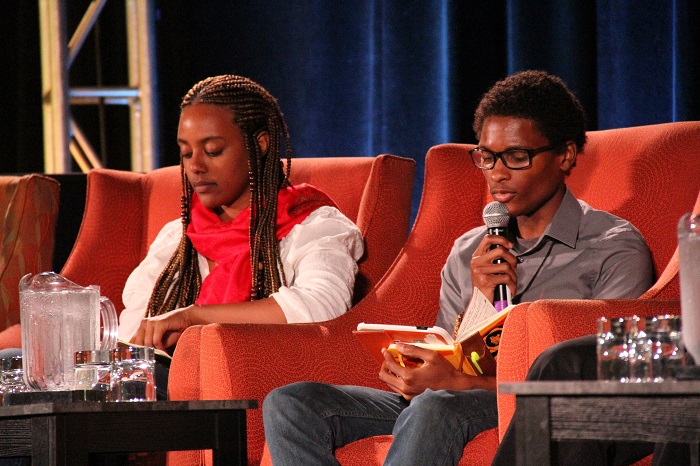My Brother’s Keeper
This closing plenary provided a chronology of My Brother’s Keeper and was led by leaders from different tables representing the youth community, the nonprofit sector, the faith community, philanthropy, and state and local government who have been working to engage their sectors and provide recommendations to the White House.
Presenters/Moderators
Sakira Cook
The Leadership Conference for Civil Rights
Leon Andrews
National League of Cities
Damon T. Hewitt
Open Society Foundations
Victor Carter
Kids Rethink New Orleans Schools
Tezeru Teshome
1Multicultural Youth Justice Coalition
Reggie Moore
Center For Youth Engagement
Main Points
- My Brother’s Keeper is a magnifying glass on all of the work we’ve done and how far we’ve come along.
- Not sure we can take on all of the work, but we can chip away and move the needle on some of these issues.
- The movement is suffering from tension among the affinity groups (e.g. Asian and Pacific Islander, Latino, LGBTQ).
- A lot of the concern between our communities of color is about mistrust. We don’t trust and believe that “your struggle is my struggle.” But maybe there is a space to figure out how we will win and move something significantly.
- Sometimes we forget that during the civil rights movement, there weren’t necessarily the resources to shape that movement. People used their collective resources and skills in the spaces they were in to help one another.

Damon Hewitt (Philanthropy Table)
- This work has been un-interrogated. We’re at a crossroads about our critical understanding of our work and how we are going to have impact together.
- This government doesn’t own this work; we own this work. There is no My Brother’s Keeper federal program, so we have to leverage this moment.
Reggie Moore, Victor Carter, and Tezeru Teshome (Youth Table)
- There should be transparency in the process.
- We need to create a protective space for youth to engage and speak for themselves.
- We all need to identify and provide the career pipelines that lead to success for young men of color.
Leon Andrews (State and Local Government Table)
- The role of the National League of Cities job was to engage state officials, local officials, and tribal leaders about My Brother’s Keeper.
- Cities United brought together 20 U.S. mayors to commit to reducing violence and violent deaths among black men and boys.
- There is reason for some cynicism. History tells us we have always marginalized boys and men of color; now all of a sudden we want to change the system?
Sakira Cook (Nonprofit Table)
- The Leadership Conference for Civil Rights engaged national, state and community-based organizations for an initial conversation.
- A mapping process identified what organizations are doing, how it could relate to My Brother’s Keeper, and the areas in which those organizations would like to see change.
- Five key principles that emerged from conversation were 1) promoting healthy children, families and communities, 2) expanding educational opportunities, 3) ensuring economic opportunity, 4) decriminalizing youth, and 5) ensuring civic participation and engagement of people in this community.
- We’re trying to ensure inclusivity in the framing of critical issues and meeting the needs of multiple populations.
Standout Quotes
"We need a route, not just a destination. We need to understand how we are getting there. Why? Because we are all invested in each other and like family, we need to know who the actors are, how we are getting there, and when we plan on getting to the destination."
Marcus Littles
"How can we come together to leverage this My Brother’s Keeper moment?"
Damon Hewitt







